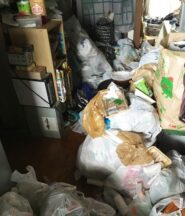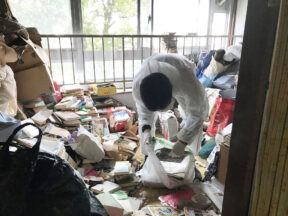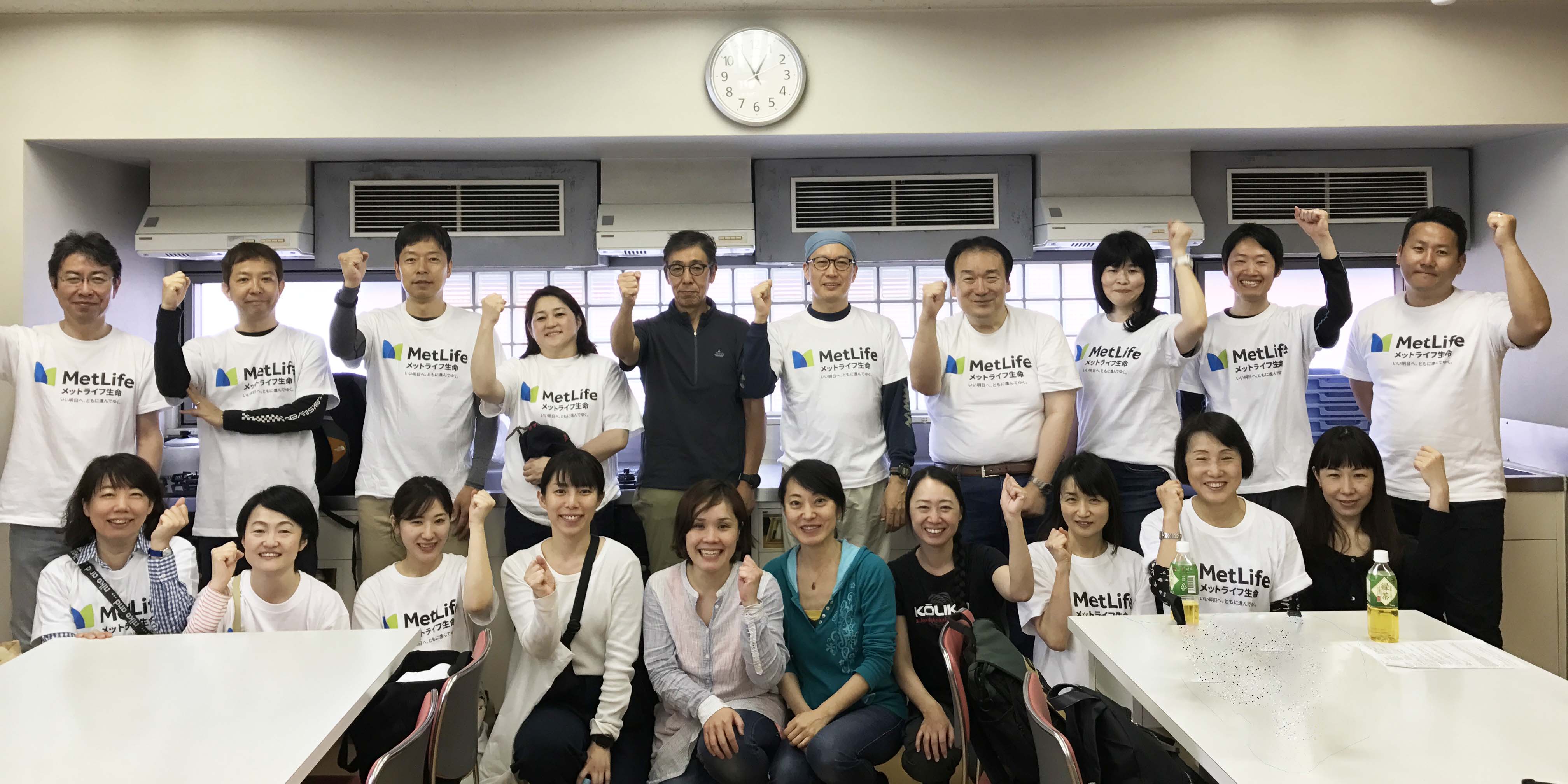Poor living conditions are difficult to see from outside. However, there are people who live with little family or social support in unsafe and unsanitary condition. No matter he/she wants to a have decent home, it is sometimes difficult if he/she has physical or financial limitations due to the age or disabilities. Habitat Japan launched a local volunteer program called Project HomeWorks to help those who are in need to improve home conditions.
 Among the people we have partnered with was a woman who, as she got on in years, started to leave things lying about on the floor of the home where she lives alone. There was also a couple whose treasured collection of books took up more and more space over the years, until one day they had trouble finding a place to lie down and sleep. There was also the young person whose natural clumsiness made tidying up cumbersome. There were various reasons why their living conditions had deteriorated, but many contacted Habitat because they wanted a safe and decent home again. In the Project HomeWorks, Habitat works with volunteers to improve home conditions through cleaning and simple repair.
Among the people we have partnered with was a woman who, as she got on in years, started to leave things lying about on the floor of the home where she lives alone. There was also a couple whose treasured collection of books took up more and more space over the years, until one day they had trouble finding a place to lie down and sleep. There was also the young person whose natural clumsiness made tidying up cumbersome. There were various reasons why their living conditions had deteriorated, but many contacted Habitat because they wanted a safe and decent home again. In the Project HomeWorks, Habitat works with volunteers to improve home conditions through cleaning and simple repair.
The MetLife Foundation, which has its headquarters in New York, has been supporting Habiat’s global projects and last year they started to contribute to support Project HomeWorks in Japan. Following last year, the employees of the MetLife Insurance company joined Project HomeWorks as volunteers to improve home conditions.
The sky was blue on May 22nd, when twenty volunteers from MetLife Insurance came to help with cleaning. Eleven volunteers gathered in the morning and split into teams to go to work on two households. They sorted out what to keep and what to throw away, carried away the trash, and cleaned. They talked with our home partners to decide what should be kept, while sorting out books and clothes into boxes. Some of the volunteers were participating for the second time, and in addition to working efficiently, they were also careful to assure our home partners that their wishes would be respected.
 Sanitary conditions at both of the households where the volunteers went had deteriorated considerably, and there were also safety concerns with all of the things scattered about. There was a lot of work to do, so another ten volunteers came in the afternoon to take over from the morning teams.
Sanitary conditions at both of the households where the volunteers went had deteriorated considerably, and there were also safety concerns with all of the things scattered about. There was a lot of work to do, so another ten volunteers came in the afternoon to take over from the morning teams.
Lunchtime, when the morning and afternoon teams were all together, was a time to share thoughts as well as work plans. They passed off information about the situation in the houses, the work flow, and points that needed special attention, not to mention the home partners’ reactions. They displayed excellent teamwork, and the afternoon teams took the baton and ran without a hitch.
Later, we received lots of feedbacks from the volunteers who participated in this activity. What follows are just a few examples.
“At the end, when he told me “Thank you. It looks much better now,” I felt that I had been rewarded, and was very glad.”
“I kept wondering why it had gotten so bad, but then I thought it would be nice if I could come to the same house again and see how it has gotten better.”
“My thoughts ran to my own family while I was working; and it gave me a lot to think about.”
“If I had known more about the situation ahead of time, I could have thought about how best to clean up. That underlined the importance of continuing to participate.”
“At the end, when the householder thanked us, he put on a hat that we had found while tidying up, and looked very pleased. That made it all worthwhile.”

We thank Metlife Foundation and the volunteers from MetLife Insurance who helped their hands. Habitat will continue to work with volunteers to improve living environments and help build relationships.
